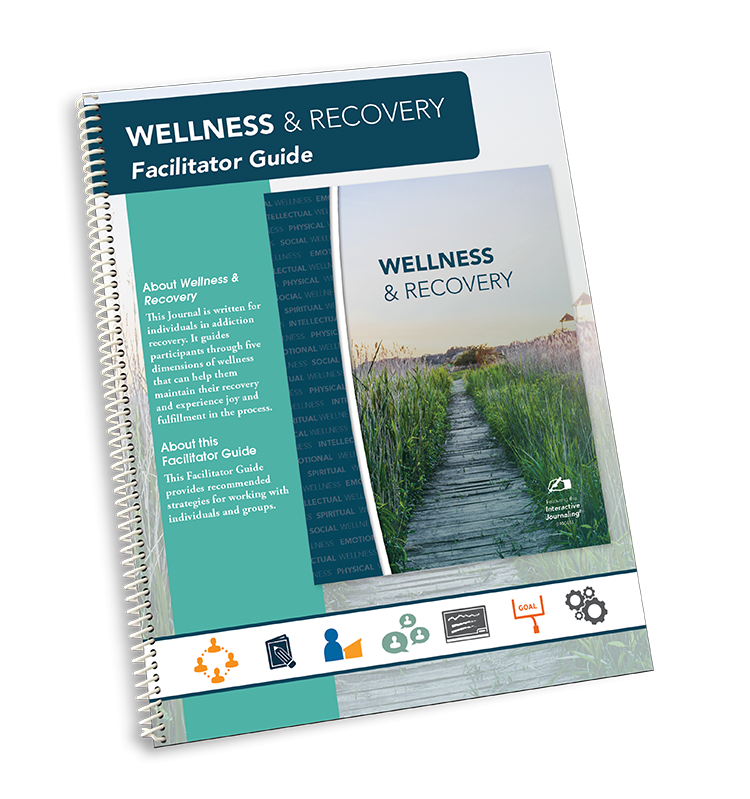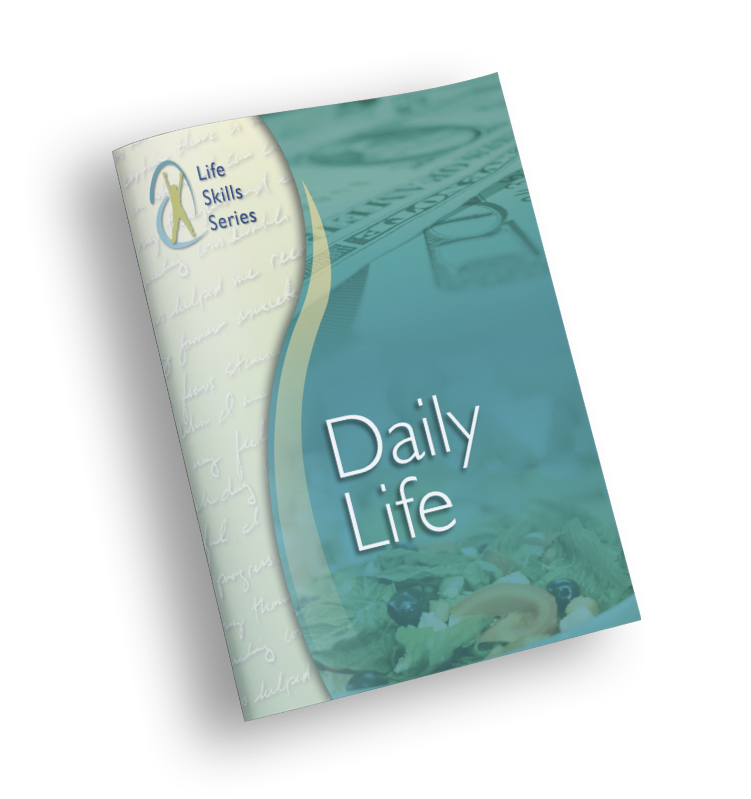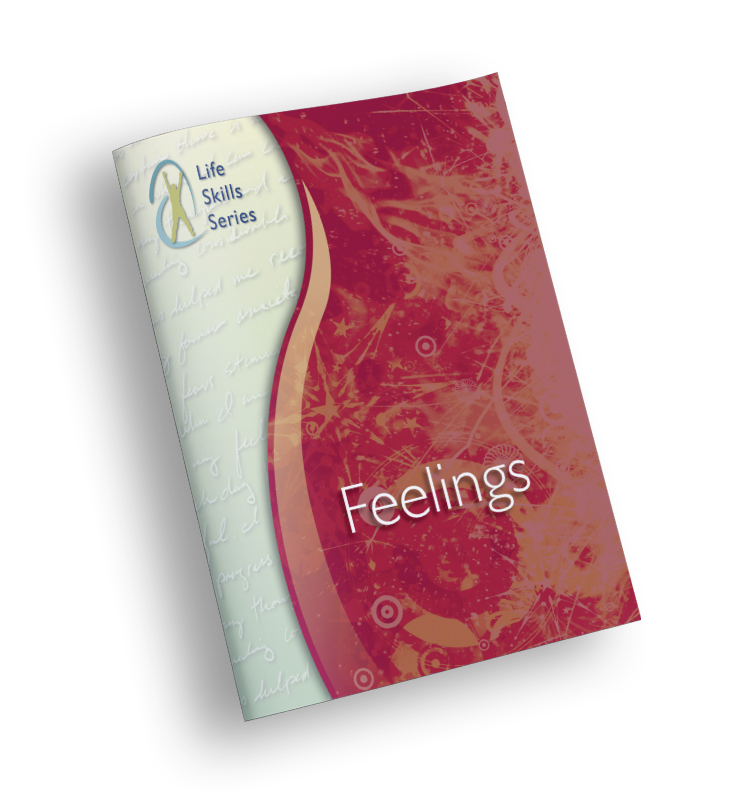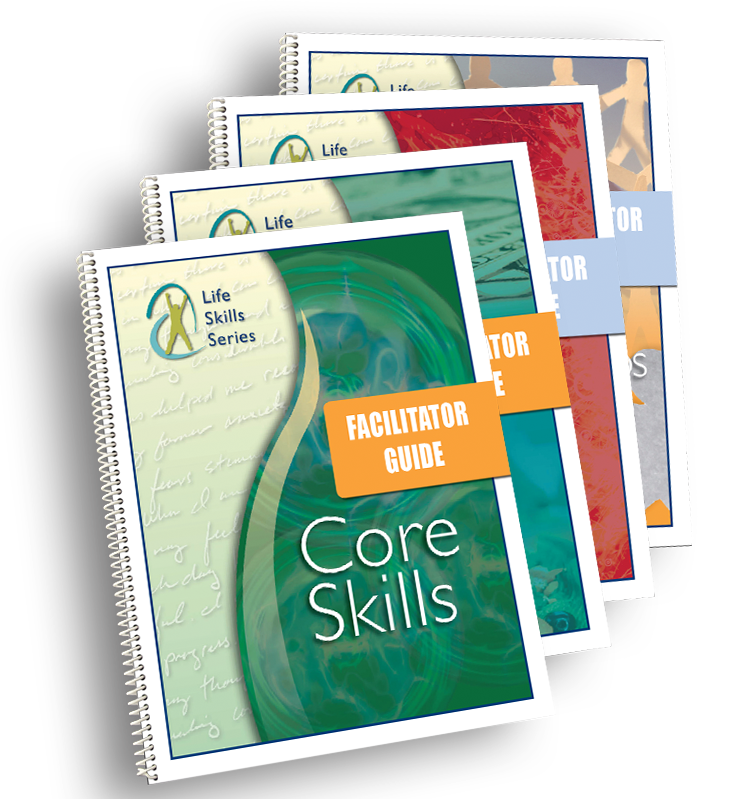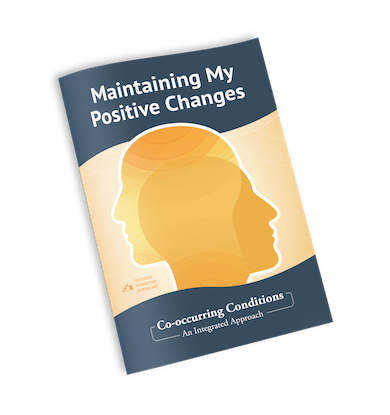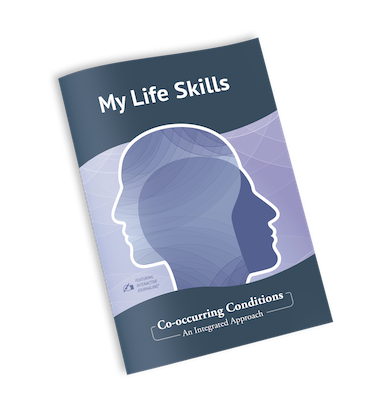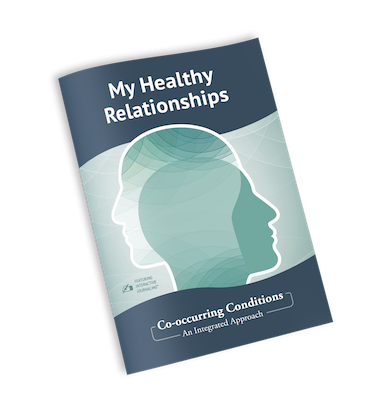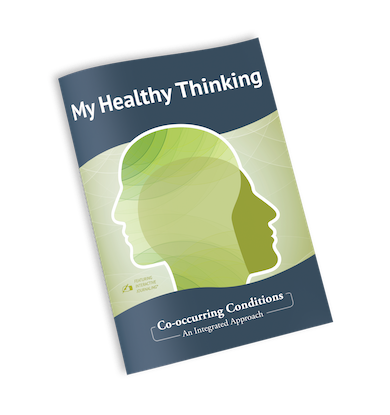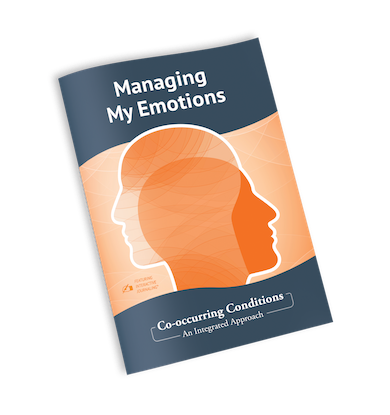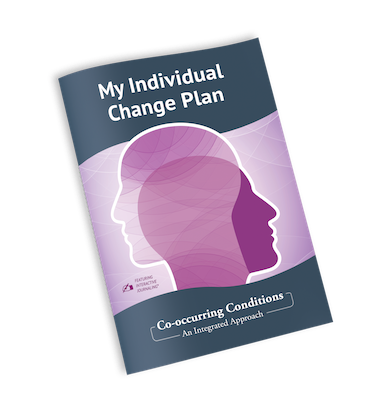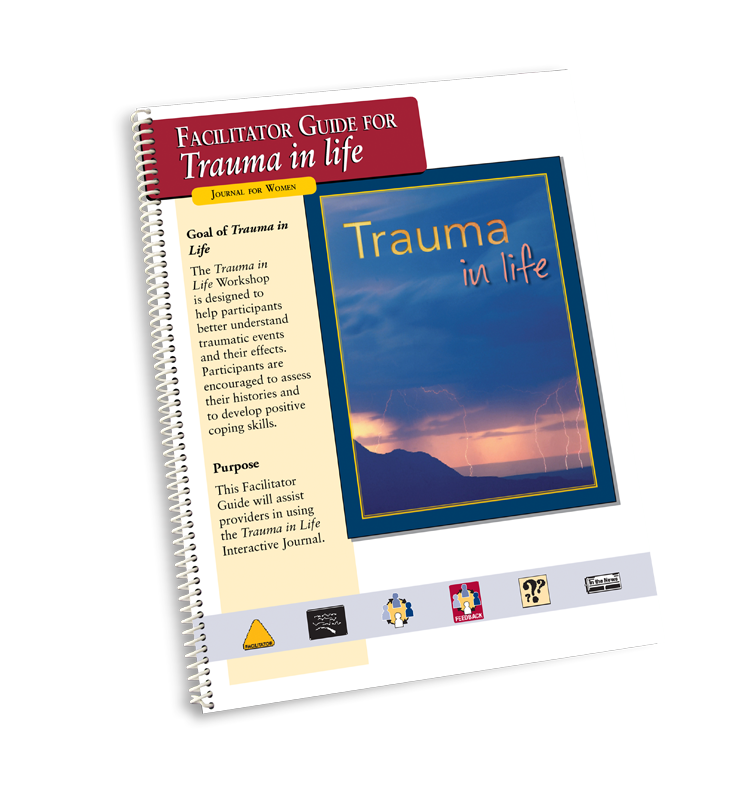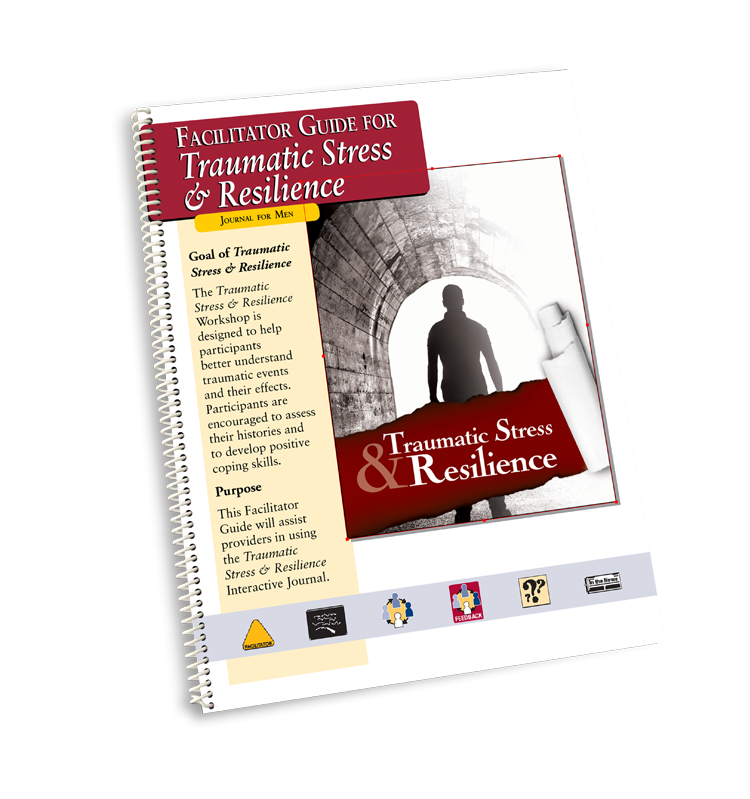Mental Health Curricula for Behavior Change



Interactive Journaling® is a method you can use to engage, inform and inspire participants in mental health programs. Designed to help people make lasting changes, each Journal incorporates leading change theory and motivation research.
Interactive Journaling® is a structured and experiential writing process that motivates and guides participants toward positive life change. Created with support from more than 250 professionals in the health and human services fields, Interactive Journals rest on a solid research foundation. Each mental health Journal draws on cognitive-behavioral therapy, motivational interviewing, expressive writing and the transtheoretical model of behavior change. Applications include anger management, depression, mental illness, stress management and more.
The Change Companies® has worked with top researchers for 30 years to stay on the leading edge of behavioral and mental health science. We collaborate with front-line providers and internationally recognized experts, including Drs. David Mee-Lee, William Miller and James Prochaska.
Interactive Journals are designed to support a wide range of treatment and behavior modification programs, including individual and group therapy sessions. You can use this approach in your mental health program to:
- Provide a consistent experience across groups and locations
- Plan efficiently with guides for group leaders
- Help participants move forward, no matter their starting point
Please contact us for a free consultation on Interactive Journaling® at 888-889-8866
MENTAL HEALTH CURRICULA


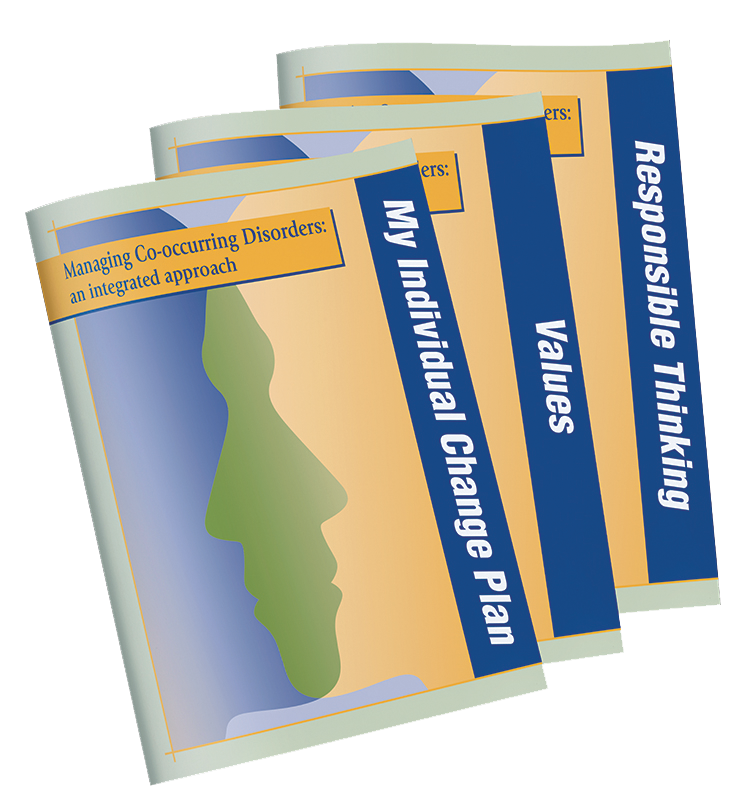
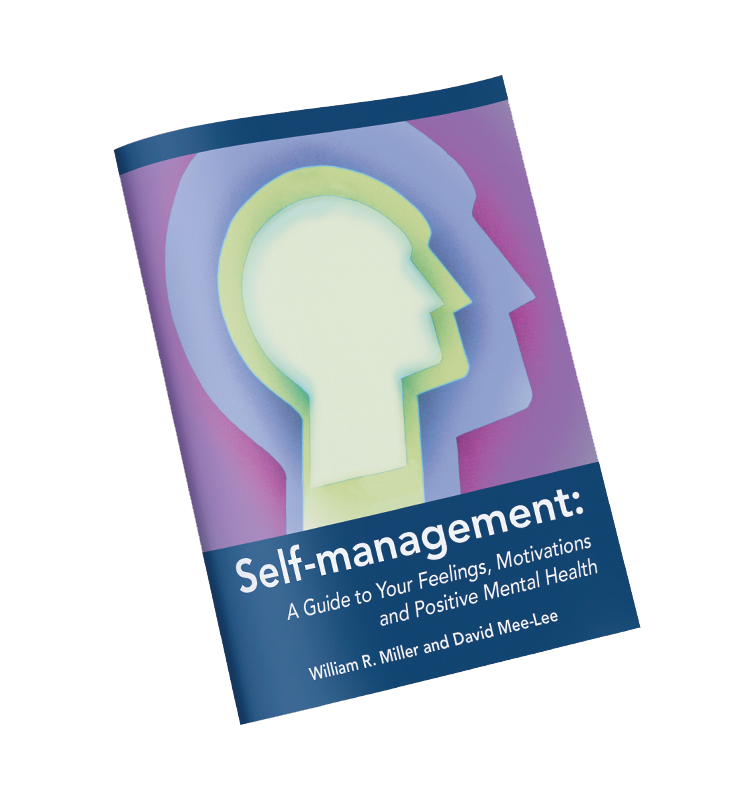




Interactive Journaling®: An Evidence-based Approach for Mental Health
The practice of Interactive Journaling® is built on multiple areas of behavior change research. Because no single approach is most effective for all people, we integrate many options for participants to explore what works for them. Interactive Journals are flexible, cost-effective and compatible with nationally recognized criteria like the DSM-5.
Throughout all Interactive Journals, you’ll find the consistent message that participants are responsible for their choices. In addition, all materials emphasize that people can and do change. Our basic premises include:
- Change is a universal life experience
- Change is possible
- Change is a process, not an event
- All change is self-change
Several evidence-based modalities are integrated in the development of Interactive Journals. Here are highlights from our foundational models:

Motivational Interviewing
Originally tested for alcohol and drug problems, motivational interviewing (MI) helps people get unstuck in their motivation for change. With more than 200 randomized clinical trials published, MI spread rapidly into health care, corrections, health promotion and mental health applications.
Ambivalence or reluctance to change is a universal challenge. Building on MI, Interactive Journals are designed to draw out and strengthen participants’ own motivations for change. There is strong evidence that both oral and written self-descriptions of motivation predict behavior change and treatment outcomes. Interactive Journaling® is designed to elicit pro-change language – not requiring “the right answers” but exploring participants’ own arguments for change.
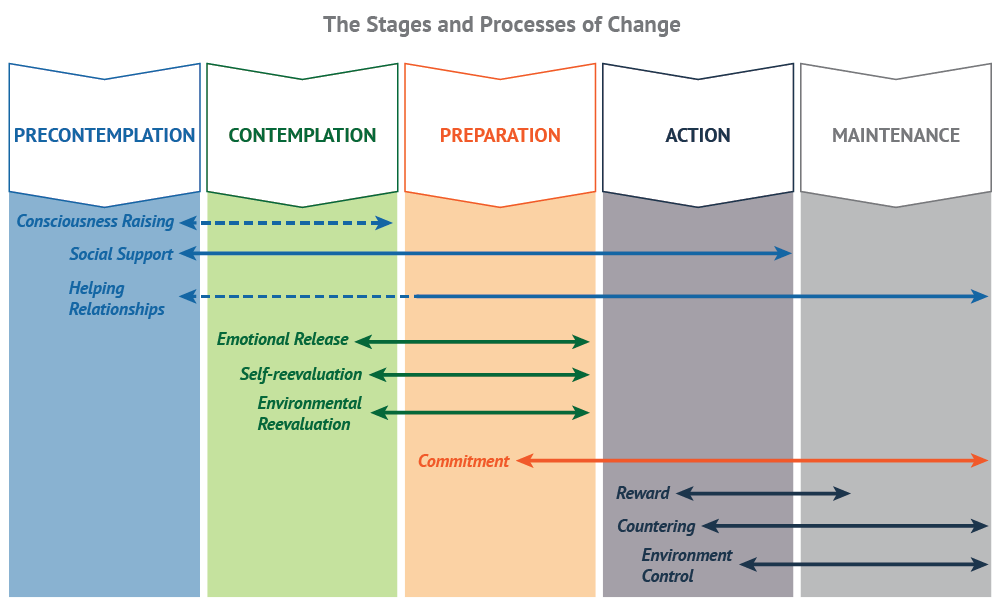
The Transtheoretical Model of Behavior Change
The transtheoretical model (TTM) is a widely researched model of the behavioral change, also known as “stages of change.” Rather than waiting for participants to get motivated (or blaming them for being unmotivated), TTM researchers developed practical methods to build readiness and promote positive change.
This model identifies five stages of change and 10 processes that help people move through the stages. We use TTM research to make Interactive Journals relevant to all participants at their current level of readiness to change.
Cognitive-behavioral Therapy
Cognitive-behavioral therapy (CBT) is a method to address thinking patterns that cause problems for individuals. Interactive Journals incorporate cognitive and behavioral exercises to help participants learn practical skills for mental health management. Mental health conditions proven to benefit from CBT include anxiety, post-traumatic stress disorder, obsessive-compulsive disorder and more.
Rather than prescribing a single approach, Interactive Journals offer a broad menu of cognitive-behavioral strategies. These strategies are delivered in everyday language: goal-setting, social support, thought stopping, mental rehearsal and more. Each of these strategies has an extensive research base of its own. Through Interactive Journaling®, participants can explore strategies that fit their mental health goals.

Structured and Expressive Writing
Expressive writing demonstrates positive outcomes across many areas – even when used during brief periods and under widely varying conditions. For example, expressive writing has been used to improve physical and mental health following trauma and other stressors.
Studies have also shown journaling to be valuable in self-exploration, healing and coping with difficult situations in healthy ways. Structured journaling is especially valuable to support the process of behavior change. Each of our mental health Journals includes structured and expressive writing strategies to guide participants toward positive change.
How to use Interactive Journals for Mental Health Programs
It is vital for people to be actively engaged in their own mental health treatment. Interactive Journaling® is a perfect fit when developing mental health programming. Flexible series allow you to choose Journals that fit your budget and participants’ needs, and Facilitator Guides give you evidence-based options for leading discussions.
You can select Interactive Journals to guide participants at a pace appropriate to their stage of change and individual learning style. Participants using Interactive Journals will:
- Learn strategies to decrease high-risk behaviors
- Build confidence in their ability to maintain positive change
- Equip themselves to apply program concepts to individual life experiences
- Practice coping strategies for continuing the change process
If you’d like help identifying the best Journals for your mental health program, contact us at 888-889-8866. Team members at The Change Companies® can make informed recommendations and provide implementation training for your staff.


